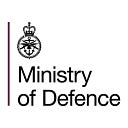HMS Prince of Wales pushes the boundaries into the Arctic
HMS Prince of Wales recently prepared for Arctic deployment during her High North operation
HMS Prince of Wales led a task group in the North of the Atlantic to demonstrate the ability of the UK’s two aircraft carriers to operate in harsh environments.
The carrier returned to Portsmouth after seven weeks away, during which she was on the outskirts of the Arctic Circle.
There she trained with allies from NATO and the UK-led Joint Expeditionary Force.
“HMS Prince of Wales deploying in the High North has proved our ability to operate in the Arctic.
I’m very proud of our ship’s company and their constant innovation in the face of extreme conditions.”
— Carrier’s Commanding Officer, Captain Higham
The carrier acted as NATO’s command ship throughout Exercise Cold Response, the largest winter exercise hosted in Norway in more than 30 years.
- 📸 In Pictures: Largest exercise in Norway since the 80s
- 9 ways the UK Armed Forces provide support for NATO
The carrier and her task group remained in the North Atlantic to continue their cold-weather operations under the banner of UK defence’s new policy of contributing to the wider defence of the High North.
The ship welcomed an ice expert from the Royal Norwegian Navy, Commander Straten, who shared more than 40 years experience of working in sub-zero conditions to help the carrier operate in such an unforgiving environment.
“The next time a Queen Elizabeth-class aircraft carrier sails into these waters, they will be more ready and prepared, using the reports and operations that HMS Prince of Wales has covered,”
— Commander Straten, Royal Norwegian Navy
Celebrating his 33rd birthday, Petty Officer Witts was among the small party who went ashore at Jan Mayen to visit a Norwegian base.
“It was probably the best birthday I’ve ever had, the whole experience flying from the ship and seeing the island was amazing! The food from the chefs was phenomenal and it was great to meet the people there.”
— Petty Office Witts, Royal Navy
The task group continued north with outside temperatures as low as -5 degrees celsius, lowered to 22 degrees below zero by the wind chill.
Throughout, the carrier has been developing the skills needed to defend herself from hostile submarines in such conditions. She does this by having three Merlin anti-submarine helicopters from 820 Naval Air Squadron embarked.
They’ve conducted daily exercises, building up cold-weather skills, and working with an Astute-class Royal Navy submarine and four other allied submarines to train British and NATO submarine commanders of tomorrow.
The task group also worked with the Royal Air Force’s Maritime Patrol Aircraft, the P-8A Poseidon, which was controlled by HMS Richmond. The frigate then returned home to Plymouth.
